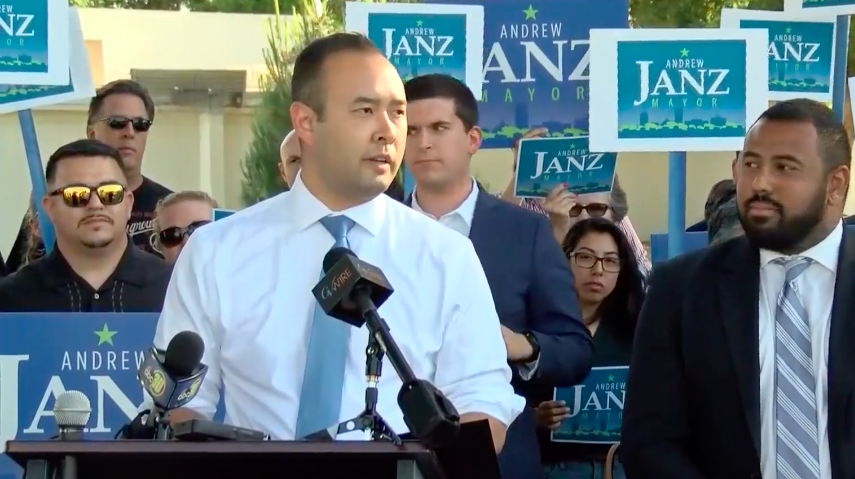By way of context, I give you two outstanding articles from the latest edition of “National Affairs.” (Full disclosure: “National Affairs” is a quarterly publication devoted to public policy. Some might consider its content to lean a bit to the right. I consider its content to be thorough, fair and practical.)
The headline of the first article says it all: “A Principled Approach to Taxing Marijuana.” It’s by Jonathan P. Caulkins, a professor of public policy at Carnegie Mellon University.
“Marijuana policy has been changing radically,” Caulkins writes. “Beginning with Colorado and Washington, eight states – including California – have now legalized not just medical use but large-scale commercial production, marketing, and sales for non-medical use. Canada expects to do the same next year. These developments are accelerating the decline in prices that has been underway since the Obama administration’s 2009 decision to tolerate state legalizations of first medical and then recreational marijuana, despite federal laws prohibiting all use. Legal marijuana now flows readily across state borders; a year’s supply for a heavy user weighs about as much as one 22-ounce can of beer. And once people can easily obtain marijuana next door, more states will legalize.
“The federal government will be forced to either shut down these state-legal operations or seek to bring order to the dysfunctional contradictions between state and federal law by legalizing marijuana nationwide. Taxes figure prominently in these debates, but no one, it seems, knows how to tax marijuana prudently.”
Caulkins’ nearly 5,000-word report does not skimp on the risks of marijuana use. He notes that “half of marijuana is consumed by people with a medically diagnosable substance-use disorder, and these individuals are disproportionately poor and less educated. Policy – including tax policy – should be designed to protect these problem users from exploitation by industry and from their own bad choices, rather than cater to the convenience of occasional users.”
Caulkins also notes that lower prices for marijuana almost certainly would lead to increased use by younger and heavier marijuana users.
On the other hand, Caulkins writes, the trend across America in unmistakable: There’s a big and growing market for recreational marijuana, and an equally big and growing industry ready to satisfy the demand.
“Marijuana can be grown anywhere,” Caulkins writes. “Ten thousand acres – about 15 square miles – can supply all the THC (tetrahydrocannabinol, the principal psychoactive component of cannabis) consumed in the entire country. So after national legalization, the industry will gravitate to states with low production costs.”
As you can see, Caulkins thinks nationwide legalization is on its way. Market forces, human nature and the multitude of taxing policies in our federal system will lead to even more chaos in the world of marijuana unless someone with a Big Stick steps in.
“The point of legalization is to substantially eliminate the black market and its attendant ills,” Caulkins writes. “Literal eradication is a stretch; after all, there are still some moonshiners…. But if even one in four criminal traffickers keep their jobs after legalization, the policy will have failed. Hence, for legalization to succeed, the after-tax legal market must win the price war against the black market.”
Caulkins’ detailed but fast-paced article adds important context to the ongoing debate over recreational marijuana at Fresno City Hall. Tax policy has a way of homogenizing life. Caulkins is cautiously hopeful that America will come up with a wise national policy for taxing marijuana.
“Marijuana prohibition is tottering,” Caulkins writes, “and procrastinating on doing the hard work of thinking through tax principles will more or less ensure a bad replacement.”
The second important National Affairs article that bears on Fresno City Hall marijuana policy is titled “Edward Banfield Revisited” by Daniel DiSalvo, a political science professor at City College of New York.
Banfield was a political scientist who died at age 82 in 1999. He taught at the University of Chicago and Harvard. Banfield’s most notable books are “The Moral Basis of a Backward Society” and “The Unheavenly City.”
Why is it important for the America of 2017 to take a fresh look at the work of a professor who has been dead for nearly two decades? Because, DiSalvo writes, Banfield was fearless when it came to studying – and reporting on – the actions of people in the political arena.
“On nearly all of the issues that comprise the contemporary policy debate – social class, race, employment, the minimum wage, education, crime, immigration, and housing – Banfield’s work still illuminates a great deal,” DiSalvo writes.
“Reflection on Banfield’s insights into human nature and the importance of culture provides one with an appreciation of the limits and pitfalls of political and policy reform. It also affords us the opportunity to gain insight into contemporary expectations of and dissatisfaction with American government. In particular, his thought offers a powerful case for why we should moderate our hopes and our fears about the trajectory of American politics and society.”
Portion’s of Banfield’s work managed to anger both progressives and conservatives. DiSalvo quotes political scientist James Q. Wilson describing Banfield as a “prophet without honor.”
DiSalvo’s superb 6,300-word essay explains why Banfield in this day and age deserves honor among Americans.
For example, DiSalvo writes, Banfield found that rationalism has serious limits in politics.
“The reasons for such conclusions was Banfield’s low (but solid) estimation of human nature and its prospects for improvement,” DiSalvo writes. “’[T]he only appropriate [view] for the political thinker,’ he asserted, is that man is ‘by nature mainly a creature of passions and only incidentally one of reason,’ and that his ‘overriding passion is to be admired.’ The selfish nature of man means that reason’s power in society is likely to be limited. Conflict is therefore ‘the central, ineradicable fact of life,’ and reasonable discussion can never be the basis of social order. Deliberative democracy is a delusion.
“He argued that we can rarely, if ever, make important social changes intentionally. The most we can do is make minor changes at the margins. Change is likely to be slow and seldom develops according to government plan. Culture matters – and culture responds slowly, if at all, to material shifts and the alteration of economic incentives. Government cannot teach virtue. It cannot change human nature for the better. We can merely hope for happy accidents.”
DiSalvo’s essay is chock full of this kind of bracing analysis.
I think you get the picture from what I’ve presented so far.
Fresno City Hall is about to ban recreational marijuana dispensaries. Dope, without a doubt, fries the brain. But the ban probably won’t last for long. The “People” in a democracy always get their way. People want the option to fry their brains. There’s money in frying people’s brains. Current tax policy on recreational marijuana is a mess. The federal government, sooner rather than later, will step in. We’ll get nationalized recreational marijuana. We’ll get nationalized tax policy on recreational marijuana. We’ll continue to get a thriving black market for recreational marijuana. We’ll get endless debate on the most rational public policies to fix all these problems. We’ll get all the fried brains we can handle.
That’s human nature.










Coalinga is going to reap the benefits of Fresno’s ban. Rory Appleton is currently working on a story highlighting the benefits of marijuana for that city, especially its improved finances. Rory and Garry Bredefeld exchanged some barbs on Twitter over the weekend where Bredefeld used the hashtag “fakenews” to describe Rory. Tim Sheehan weighed in on Garry’s snide comments. The Bee has joined the marijuana proponents in attacking the council majority.
You wrote:
“Brandau, Bredefeld, Chavez and Caprioglio – all four of them – faced the voters in 2016. All won their elections by comfortable (if not huge) margins.”
Brandau and Caprioglio were not opposed, so there was no contest. You misrepresent the facts to support your conclusion. You’ve retired from the Fresno Bee, Mr. Hostetter. Why don’t you stop trying to sell your lies with alternative facts?
Prop 64 passed in 5 out of the 7 Fresno council districts. Only Chavez and Caprioglio voted AGAINST the will of their constituents when they voted against legal Marijuana Dispensaries. The five other council members all voted the same way their constituents did.
We learned from Prohibition that banning a substance that the population wants just leads to crime and black markets. There is a cost to society to banning drugs. That cost is appropriate for Heroin, Meth, Oxy and Cocaine. It is not appropriate for Marijuana.
The most dangerous thing about Marijuana is the drug dealers that people had to deal with to get it. Now that has ended, except in Fresno.
Luis Chavez and Paul Caprioglio betrayed their constituents when they voted against legal Marijuana dispensaries. Banning them supports Gangs and the black market. When the next innocent citizen in Fresno is killed by gangs, I will be reminding both of them that they have blood on their hands.
Maybe things would get better if the gangs started going north of Bullard and gunning down old white people instead of 18 yo kids standing outside an apartment complex.
Perhaps then we might think twice about supporting gangs by banning legal Marijuana dispensaries.
One can hope.